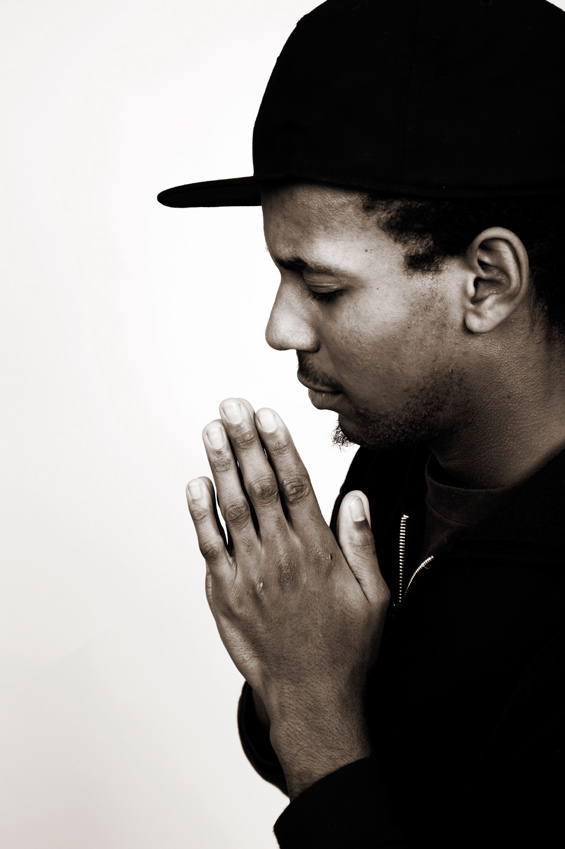The views expressed in our content reflect individual perspectives and do not represent the authoritative views of the Baha'i Faith.
in·sight n. 1 The ability to see and understand clearly the inner nature of things 2 an instance of such understanding – Webster’s Dictionary
If you’ve set out on a spiritual path, searching for inner meaning and hoping to discover mystical truths about your own soul, you’ve probably already experienced moments of insight.
Do you remember how that feels? Some people call such insight an “A ha!” moment—a revelatory epiphany that dawns on you like the summer sun rising.
 Insight works like this: whether slowly or suddenly, after meditation and study and reflection and maybe even some prayer, a concept you’ve struggled with becomes crystal clear. Because insight means “the ability to see and understand clearly the inner nature of things,” the more we use our inner sight, the more acute and accurate it becomes.
Insight works like this: whether slowly or suddenly, after meditation and study and reflection and maybe even some prayer, a concept you’ve struggled with becomes crystal clear. Because insight means “the ability to see and understand clearly the inner nature of things,” the more we use our inner sight, the more acute and accurate it becomes.
We start out sorting our insights as babies. Because children’s brains have a larger and more flexible capacity for insight and problem-solving, we educate people when they’re young. Once we’ve gone through our educational years, we can accumulate sufficient insight to build a reasonably sophisticated model of the universe, and begin functioning as competent adults.
Not everyone, though, has the same amount or kind of insight. Here’s how that works: as we grow, we accumulate multiple bits of seemingly unrelated information. Our minds and hearts then link all that random data together, and new insights result. In geniuses—those rare human beings whose brains have a particular facility for making new neural connections and therefore generating novel new ideas—insights take place rapidly and often. The same thing happens to many seekers—they develop new insights into their own motivations, their behavior and their spiritual maturation. They see into their souls.
The Baha’i teachings say that God loves insight:
Know thou, verily; God hath preferred the insight to the sight; because the sight sees the material things, while the insight apprehends the spiritual. The former witnesses the earthly world, while the latter sees the world of the Kingdom. The former’s judgement is temporary, while the latter’s vision is everlasting. – Abdu’l-Baha, Star of the West, Volume 4, p. 152.
Ultimately, insight gives us good judgment. Insight allows us to see reality for what it is; to learn how to value different things and experiences; and to determine what’s important and what’s not. In Baha’u’llah’s Tablet to the True Seeker, he wrote that insight can turn us into discerning spiritual jewelers, “who knoweth the gem from the stone:”
I swear by God! Were he that treadeth the path of guidance and seeketh to scale the heights of righteousness to attain unto this glorious and supreme station, he would inhale at a distance of a thousand leagues the fragrance of God, and would perceive the resplendent morn of a divine Guidance rising above the dayspring of all things. Each and every thing, however small, would be to him a revelation, leading him to his Beloved, the Object of his quest. So great shall be the discernment of this seeker that he will discriminate between truth and falsehood even as he doth distinguish the sun from shadow. If in the uttermost corners of the East the sweet savours of God be wafted, he will assuredly recognize and inhale their fragrance, even though he be dwelling in the uttermost ends of the West. He will likewise clearly distinguish all the signs of God — His wondrous utterances, His great works, and mighty deeds — from the doings, words and ways of men, even as the jeweller who knoweth the gem from the stone, or the man who distinguisheth the spring from autumn and heat from cold. When the channel of the human soul is cleansed of all worldly and impeding attachments, it will unfailingly perceive the breath of the Beloved across immeasurable distances, and will, led by its perfume, attain and enter the City of Certitude. Therein he will discern the wonders of His ancient wisdom, and will perceive all the hidden teachings from the rustling leaves of the Tree — which flourisheth in that City. With both his inner and his outer ear he will hear from its dust the hymns of glory and praise ascending unto the Lord of Lords, and with his inner eye will he discover the mysteries of “return” and “revival.” How unspeakably glorious are the signs, the tokens, the revelations, and splendours which He Who is the King of names and attributes hath destined for that City! The attainment of this City quencheth thirst without water, and kindleth the love of God without fire. Within every blade of grass are enshrined the mysteries of an inscrutable wisdom, and upon every rose-bush a myriad nightingales pour out, in blissful rapture, their melody. Its wondrous tulips unfold the mystery of the undying Fire in the Burning Bush, and its sweet savours of holiness breathe the perfume of the Messianic Spirit. It bestoweth wealth without gold, and conferreth immortality without death. In every leaf ineffable delights are treasured, and within every chamber unnumbered mysteries lie hidden. – Baha’u’llah, The Book of Certitude, pp. 196-197.
This passage from The Tablet of the True Seeker tells us something remarkable: that once we cleanse our souls “of all worldly and impeding attachments,” we can enter the City of Certitude.
In other words, we can find our way to the truth, and then knowingly embrace it.
Wouldn’t you like to know what’s true in this world—and in the next? You can. By following the spiritual recipe Baha’u’llah offers us in The Tablet of the True Seeker, you don’t have to adopt someone else’s truth, or accept the conventional wisdom. You can find it for yourself, and then believe it without reservation or doubt.
To do that, though, you have to increase your level of discernment and insight by practicing detachment:
They that valiantly labour in quest of God’s will, when once they have renounced all else but Him, will be so attached and wedded to that City that a moment’s separation from it would to them be unthinkable. They will hearken unto infallible proofs from the Hyacinth of that assembly, and receive the surest testimonies from the beauty of its Rose and the melody of its Nightingale. Once in about a thousand years shall this City be renewed and re-adorned. – Ibid., p. 197.
Next: Religion: Renewed Once in about a Thousand Years
















Comments
Sign in or create an account
Continue with Googleor